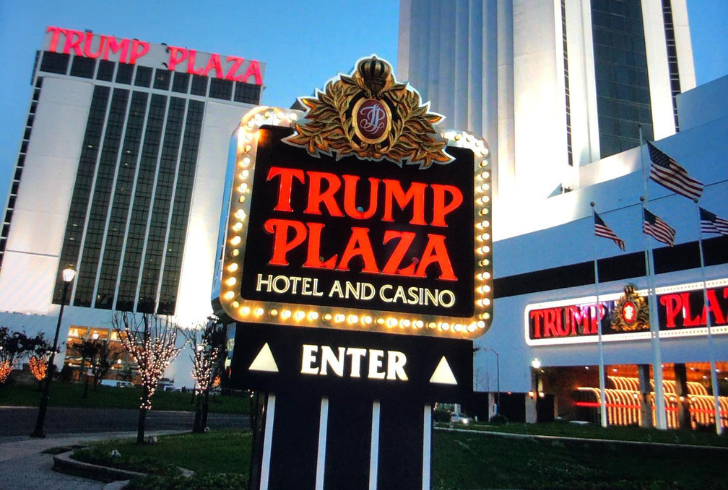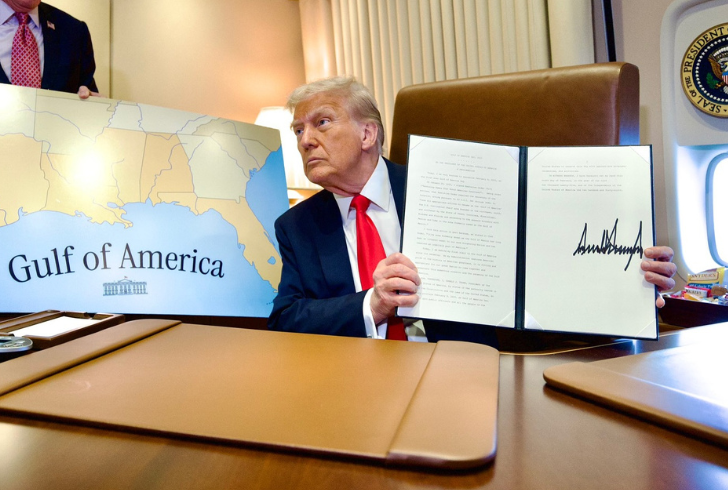How Trump Made the Presidency His Most Profitable Venture
The business venture that’s brought Trump the most consistent stream of income hasn’t been a skyscraper, a golf course, or even his once-famous casinos. It’s his time in the Oval Office. With the influence that comes with power, Trump has turned the presidency into a profitable enterprise, one that’s done well for him financially, even if it’s raised serious concerns about ethics, legality, and transparency.
How Political Power Turned Profitable
Trump’s business record, long inflated by media stunts and reality TV, paints a picture of a businessman whose real estate ventures regularly ended in debt. From Atlantic City casinos that underperformed to six separate bankruptcy filings, his resume doesn’t reflect consistent success.
A legal scholar once described his casinos as “the worst” in the city—barely competing with others during a time when Atlantic City itself was already declining.

Instagram | frank.stallone | Trump’s real estate dealings often led to debt and bankruptcies, as evidenced by his Atlantic City casinos.
Rather than build something sustainable, Trump shifted to branding. Licensing his name became the primary strategy. And even that pivot wasn’t enough to fix a legacy of broken deals and unpaid loans. By the time he entered politics, banks had backed off, and his business empire leaned more on perception than real profit.
But the presidency changed all of that.
The White House Becomes a Place of Business
Trump didn’t waste time turning public office into private gain. His properties, from Mar-a-Lago to Trump National Doral, became high-priced venues for political activity. The Secret Service stayed at his resorts at marked-up rates, and foreign dignitaries frequently chose Trump-branded hotels—decisions that appeared strategic rather than coincidental.
Despite constitutional concerns over emoluments, courts struggled to enforce clear accountability. That loophole worked in Trump’s favor. With no legal mechanism to block the profit pipeline, he doubled down.
During his second term, those profits only grew. Trump Media and Technology Group became a magnet for speculators eager to align with power. Though the company’s performance numbers looked bleak, the potential access to Trump turned it into a financial opportunity for international players. Investors from China, Middle Eastern governments, and large American corporations funneled money into businesses connected to him.
The Pardon That Raised Eyebrows
In a particularly high-profile example, Florida nursing-home executive Paul Walczak—convicted of defrauding taxpayers out of nearly $11 million—received a full pardon. His mother, Elizabeth Fago, had recently paid $1 million to attend an exclusive fundraiser. The event promised face time with Trump, and shortly afterward, Walczak walked free.
Even the New York Times, typically restrained in language, didn’t hold back.
“A judge had justified the incarceration by declaring that there ‘is not a get-out-of-jail-free card’ for the rich. The pardon, however, indicated otherwise,” wrote Kenneth Vogel.
Though there’s no concrete proof tying the donation to the pardon, the sequence of events made the exchange look transactional. Trump didn’t seem interested in hiding the optics.
Wealth Over Rule of Law

Instagram | realdonaldtrump | Trump’s second term proves the feared mix of personal gain and politics.
From licensing his name to monetizing government access, Trump found ways to sidestep traditional business risks. “Few if any legitimate investors entrusted their money to Trump’s businesses when he was out of office,” David Frum noted. “Now that he’s in again, the cash is flowing.”
Senator Josh Hawley’s defense of Trump accepting a $400 million aircraft from Qatar only added to the controversy. “Nobody believes that Donald Trump can be bought,” he said. “What does Donald Trump need more money for?”
That sentiment misses the point. Trump’s track record shows he’ll take money whenever it’s offered. Even a prank check for 13 cents from a Spy magazine correspondent didn’t go uncashed. Profit is the consistent throughline in his career, successful or not.
The Public Foots the Bill
Whether it’s through speculative media deals or questionable pardons, Trump’s second term confirms what many feared: the blending of politics and personal gain. The people winning are those with access and money. The ones losing are ordinary Americans who expect their government to function with integrity.
And while Trump may never build another skyscraper, he’s proven that selling proximity to power is the most stable business he’s ever run.